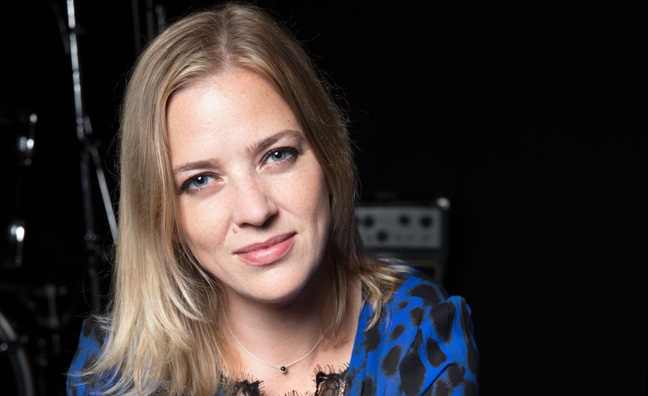In her latest must-read Music Week column, Digital Deviate CEO Sammy Andrews guides us through the ever-changing tech world...
There’s no doubt about it, the pandemic has been a real “tale of two halves” for the music industry. Some businesses have thrived, while others have been decimated.
One thing is for sure though, there is some genuine opportunity emerging from the darkness and some blatant opportunism lurking in the light.
No matter where you work in the music business, the pandemic has impacted your life as the world as we know it went nearly entirely digital for a bit. As we step cautiously into real life again, I hope our industry will take a moment to consider the things that we could change long-term for the better, instead of going right back to where we started.
I hope the industry will fully embrace the ability to run a hybrid model for flexible working – and offer it to all. Burnout levels before Covid-19 were already high across all sectors, and the impending mental health crisis many people are predicting, amplified by the virus, is a serious issue that needs our collective attention.
It’s important that we do not rush back to unhealthy habits. Understanding the need for a better work/life balance is a vital part of driving forward a healthy, happy industry (and society more widely). The past year has proved beyond a doubt that technology can make remote work a perfectly acceptable option, some or all of the time.
This also opens the opportunity for businesses to embrace the incredible workforce that lives outside of the M25. My fellow Northerners will confirm what a vast array of talent exists in other regions and in a post-Covid world we must realise that you do not need to live in London to succeed in the music industry. There are so many incredible companies operating all over the UK already, but this is a real chance to shine a light on the creative industries around the country and I really hope we take it.
I hope our industry will consider things we can change long-term
Sammy Andrews, Deviate Digital
Live shows and conferences have been transformed in the past year by technology and broadcast opportunities. It is laughable that it took a pandemic for the business at large to see the value and potential here (some of us have been running livestreams for over a decade!), and it is also utterly ridiculous that it took the outbreak to arrange formal licensing structures for such events (perhaps next time it’s worth talking to your partners though, PRS?), yet here we are and we’re presented with a real tangible opportunity to allow livestreams to play a meaningful role in all manner of events, campaigns and fanbase engagement going forward.
Along with additional revenue in many forms, the accessibility of this approach is to be applauded and the innovation and pivots made by some of our most-loved events is to be admired.
As some of the giants predictably swoop in like vultures to try and grab a bargain across the festival and venue circuit, I hope we will see the industry support those who survive and emerge from this crisis with a renewed sense of optimism and sense of potential around livestreaming in all its guises.
Love it or hate it, social media has played a huge part in our lives and jobs during the pandemic. Some people are emerging the most unlikely of TikTok heroes (Hello, Team Sea Shanty!) and others are emerging as Twitter Listening Party warriors or Club House cohorts, as the power and potential of these platforms has never been more evident. Nor is the amount of effort that it takes to run these properly!
I sincerely hope the wider business can emerge from this crisis with a better understanding of the massive amounts of work that your social teams do.
The tripled output of content and concepts they have delivered during the pandemic just to keep the wheels turning, and the skill it takes to get these things right, is something that needs appreciating and rewarding. Plus, I guarantee your social teams need a holiday.
One of the nicer things to come out of the last year has been high-level industry collaborations across certain sectors, leading to large amounts of money being donated and distributed to those who needed it.
The freelance army that keep our businesses going was, on the whole, left with no help from the government. A heady mix of generosity, charity, collaboration and technology has helped to get these people the money they needed to survive when they were in danger of losing everything.
I hope we all come out of this with a renewed sense of gratitude for the incredible people and organisations across our industry who helped so many. I also hope we can give a firm kick up the arse to any firm who ever dares to pay freelancers late again.
Finally, it’s been a huge topic both before and during the pandemic but, magnified by current events, we have all been looking very closely at the streaming economy.
Regular readers will know this is a topic I have discussed many, many times, so I won’t labour the point too much except to say we have a real opportunity to come out of this coronavirus crisis with a fairer, more efficient streaming system that works for all. Whether that means looking at fairer splits, stream rates, new payment models, equitable remuneration or subscription rates, all stakeholders must take heed of the arguments raised by all sides of the argument and find ways where we can truly work together to achieve real, transformative change. Enough kicking each other in public, let’s come out of this crisis as a better, healthier, stronger industry.








